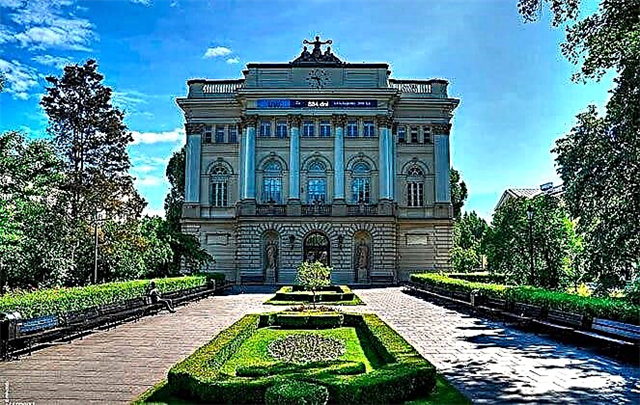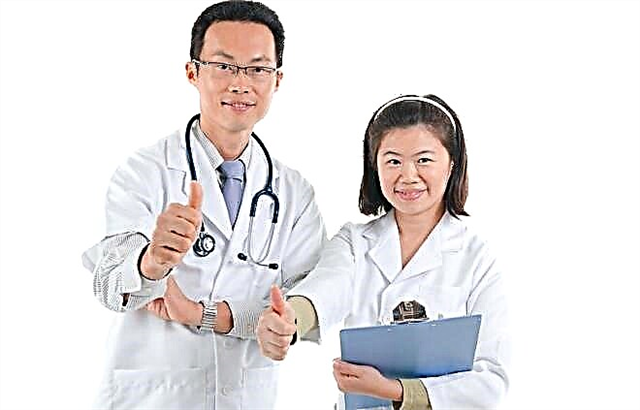The Federal Republic of Germany is rightfully considered one of the most progressive countries in the world in the field of medicine and health care. This is due to the fact that there are many medical institutions formed at universities that conduct not only examinations and treatment courses, but also research and teaching. University hospitals in Germany always use the latest techniques and equipment to treat their patients. Many of them, due to their popularity in the international arena, specially open international branches.
The difference between university hospitals and ordinary
By type, German hospitals can be divided into public, private, city and university. The latter differ from all others in that they are created on the basis of universities, and in addition to treatment, their employees are also engaged in research work.
University hospitals often combine several medical centers, which in turn are divided into many departments. Thus, they are multidisciplinary, which provides a comprehensive approach to patient care.
Main directions of research and treatment
Research and treatment are carried out in all possible directions, namely in the following:
- urological,
- gynecological,
- psychotherapeutic and psychiatric,
- dermatological,
- hepatological and gastroenterological,
- cardiological,
- immunological,
- oncological,
- neurosurgical,
- dental,
- orthopedic.
Many multidisciplinary clinics have earned a reputation for being the most competent in one area or another.
For example, at the University Hospital in Essen, which is one of the best medical institutions in Germany, for the first time they began to use the most accurate way to diagnose various neoplasms - positron emission tomography. This clinic is also trustworthy in terms of diagnostics and treatment of hematological, oncological and cardiovascular diseases.
The Heidelberg Clinic is not only one of the oldest medical institutions in Germany, but also one of the largest, since there are about forty departments, including an ophthalmological and urological center, a clinic for diagnostics and treatment of oncology, rheumatology and hematology, an endoscopy department, a chemical laboratory, and so on. Further.
Most of Munich's medical institutions are also multidisciplinary. One of the most reputable clinics in Germany is Rechts der Isar, which is constantly developing and offering the latest treatment methods through a joint collaboration with the Technical University of Munich. Patients from other cities are often redirected to this clinic for diagnostics using positron emission tomography.
The Charite Clinic in Berlin is not one medical institution, but a whole complex of seventeen medical centers, which, in turn, have a total of 103 clinics. The Charite complex is part of a joint medical project between the Humboldt University and the Free University of Berlin. In the Charité clinics, treatment is carried out at a high level in almost all areas, but the areas of oncology, gynecology, urology and neurosurgery are especially trusted by patients. Immunological and molecular diagnostics occupy not the last place in the achievements of the practice of the Charite medical centers.
The University Hospital Cologne contains 14 research institutes, 10 medical centers and 35 specialized clinics.
In Cologne clinics, they successfully treat such rare diseases as multiple sclerosis and cystic fibrosis, carry out various prosthetics, and transplant organs. But the clinic pays special attention to the study and treatment of oncological diseases. Here, a special "cyberknife" technique is used, which allows to treat the tumor without cutting the skin, but by influencing it with precise radio emission.
The University Hospital Freiburg was formed on the basis of the Albert-Ludwig University of Freiburg. The clinic is considered one of the most advanced in Germany. The achievements of the researchers at the Freiburg Medical Institution are the world's first heart transplants and brain surgery performed by robots.
In addition, the clinic is the most experienced in terms of performing kidney transplant operations with blood group incompatibility: this kind of operation was performed for the first time in this clinic.
Required documents for travel for medical treatment
To obtain a visa for treatment in a German clinic, the following documents must be prepared:
- application form for a Schengen visa;
- international passport;
- 1 photograph 3.5 x 4.5 cm;
- medical insurance policy with a coverage amount of at least EUR 30,000;
- a photocopy of the first page of a civil passport, plus copies of all pages with marks;
- payment of the consular fee;
- proof of the existence of grounds for returning back to their home country after undergoing a course of treatment (certificate from the place of employment, documents for real estate, and so on).
In addition to the main documents, you will also need papers confirming the purpose of the trip:
- an official invitation from a medical institution in Germany signed by a doctor who undertakes to carry out the treatment (can be sent from the official e-mail of the clinic or your doctor to the mail of the German Embassy in Russia, designed specifically for questions about treatment [email protected]). If you have entered into an agreement with an intermediary company that provides services for the selection of a clinic, then often their employees are obliged to issue this invitation;
- confirmation of the availability of accommodation - a hotel reservation or proof of the availability of accommodation provided by a medical institution;
- confirmation of the availability of money to pay for the treatment course in the form of a bank statement for the last three months, with the amount covering the necessary treatment costs, or in the form of confirmation from the hospital about the payment.
If the patient is a minor, then in this case the following are required:
- birth certificate;
- notarized consent from both parents or other authorized representatives (guardians) for the minor to travel abroad. If a child travels abroad with only one of the parents, then the consent of the second is required, except in cases where the second parent does not have paternal rights or his death (in this case, it is necessary to submit a court order or death certificate);
- a photocopy of the parent / guardian visa traveling with the child abroad;
- other documentary evidence of joint travel abroad (hotel reservations, air tickets, and so on).
Find out more about how a medical visa to Germany is processed.
The cost of medical services
The prices for medical services in different clinics may differ slightly depending on many factors, for example, the diagnosis of a particular patient, complications, the popularity of the clinic, and so on. But on average, the approximate cost of diagnostics and treatment in Germany in some main areas is as follows:
| Medical services | Approximate cost, euro |
|---|---|
| Evaluation of images (in absentia) | 250 |
| Examination of biological material in case of suspicion of cancer in the urological direction | 950 |
| Examination of biological material in case of suspicion of cancer in other directions | 1 350 |
| Computed tomography of the chest and neck | 625 |
| Computed tomography of the abdomen | 610 |
| Operation for varicose veins | 5 500-6 500 |
| Positron emission tomography | 1 900-2 950 |
| MRI of the body | 1 400 |
| MRI of vessels | 1 300 |
| Extensive body diagnostics | 1 700 |
| Oncological diagnostics | 10 000 |
| Chemotherapy course | 2,000-3,500 (depending on drugs) |
| X-ray | 90 |
| Mammography | 100 |
| Physiological childbirth | 5 500 |
| Ophthalmic assessment | 650 |
| Surgical cataract treatment | 5 000 |
| Ultrasound of the heart | 150 |
| Examination in the direction of neurology | 750 |
| Surgical removal of pituitary adenoma | 22 000 |
| Removal of a tumor in the brain | 22 000 |
| 14-day orthopedic rehabilitation course (after injury, joint replacement, etc.) | 3 500 |
Most popular clinics
The list of the most popular German university hospitals includes the following:
| Clinic | Address |
|---|---|
| University Hospital Dusseldorf | Murrenstr. 5, 40225, Düsseldorf |
| Charite University Hospital, Berlin | Charitéplatz 1, 10117, Berlin |
| Aachen University Hospital | Pauwelsstraße 30, 52074, Aachen |
| University Hospital Tubingen | Geissweg 3, 72076, Tübingen |
| University Hospital Freiburg | Hugstetter Str. 55, 79106, Freiburg im Breisgau |
| University Hospital Nuremberg | Prof.-Ernst-Nathan-Straße, 1, 90419, Nürnberg |
| University Hospital Heidelberg | Im Neuenheimer Feld, 672, 69120, Heidelberg |
| University Hospital Munich | Campus Großhadern, Marchioninistraße, 15, 81377, München |
| University Hospital Dresden | Fetscherstraße, 74, 01307, Dresden |
| University Hospital Münster | Albert-Schweitzer-Campus 1, 48149, Münster |
Common questions
Before leaving abroad for the purpose of undergoing a treatment course, many foreigners are concerned about some organizational issues, the most common of which we suggest to consider below.
Getting advice without a personal visit to Germany
You can get advice without a personal visit to Germany, but this service is often paid. Many clinics or intermediary firms organizing medical treatment abroad offer a service such as Second Opinion on their websites.
In order for the doctor to become familiar with your situation, you need to fill out an online application and answer questions regarding your health condition, diagnosis and complaints. There are different types of services, for example, teleradiology (examination of your radiological images), online video consultation (plus you can order an assessment of images separately) and a written response (a specialist answers your request in writing without reviewing images).
What is needed for the travel of accompanying persons
Foreign patients can come to Germany for treatment with one accompanying person or even several, if the degree of the disease is rather severe and the patient's condition requires assistance. Almost all medical centers provide accompanying persons with separate rooms, but it is also possible to stay at the hotel.
A visa for accompanying persons is issued on the basis of the patient's documents: an official invitation from the clinic and confirmation of the availability of accommodation. If the accompanying person applies to the embassy later than the patient, then in addition to the basic documents for a visa, he must also provide photocopies of the patient's passport and the patient's finished visa.
Importation of medicines prescribed by doctors in the home country
When arriving in Germany for treatment, you must definitely take with you the medicines prescribed for the patient at home, in such an amount as to be enough for the entire period of stay abroad. It is advisable that along with the medicines you have instructions, with the help of which, if necessary, German doctors can find out what active ingredients are in the preparations. This is necessary so that the specialists of the foreign clinic can fully assess what kind of treatment you have been prescribed in your home country.
Receiving a discharge after the end of treatment
An extract is a document that indicates your diagnosis and the methods that should be treated. In addition, there may also be recommendations in the discharge, following which the discharged patient will be able to speed up the rehabilitation process. This document is issued to all patients undergoing treatment in German clinics. The extract is issued in German.
Conclusion
If you are interested in treatment abroad, then in this case you should pay attention to the medical institutions in Germany. Medical professionals in this country offer the most modern treatments and innovate therapies based on the latest research. This research is carried out in university clinics established on the basis of higher educational institutions and in collaboration with professors of medical faculties.
University clinics are classified as public institutions, so treatment in them will be somewhat cheaper than in private hospitals. At the same time, a preliminary consultation about your state of health in most of the clinics can be obtained online.











